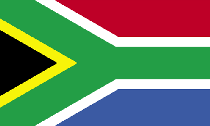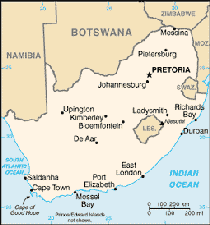A reader asks:
"I know you have been learning the language and customs me the region, but I wonder if the language barrier is a problem, or do you find other ways to communicate?"
Compared to Peace Corps Volunteers in other countries, we probably experience less of a language barrier. Students are taught in their home language only through third grade, after which all instruction is given in English (though legally, students can receive instruction in their language of choice). So the younger population is fairly proficient and many working in the professional fields are also fluent.
However, older members of the community may only speak Northern Sotho (Sepedi) and others may speak Sotho and Afrikaans, which was the language of instruction for all grades during apartheid. While we are quickly learning Sepedi, "ga ke kwešiše" (I don't understand) and "ke bolela Sepedi sa nyanne" (I speak a little Sepedi) are common phrases in our everyday speech.


